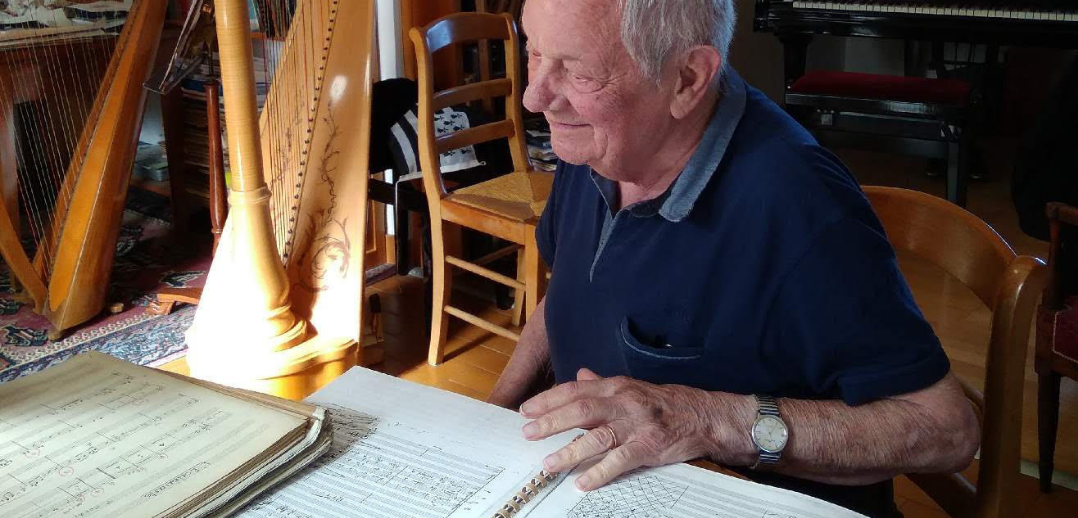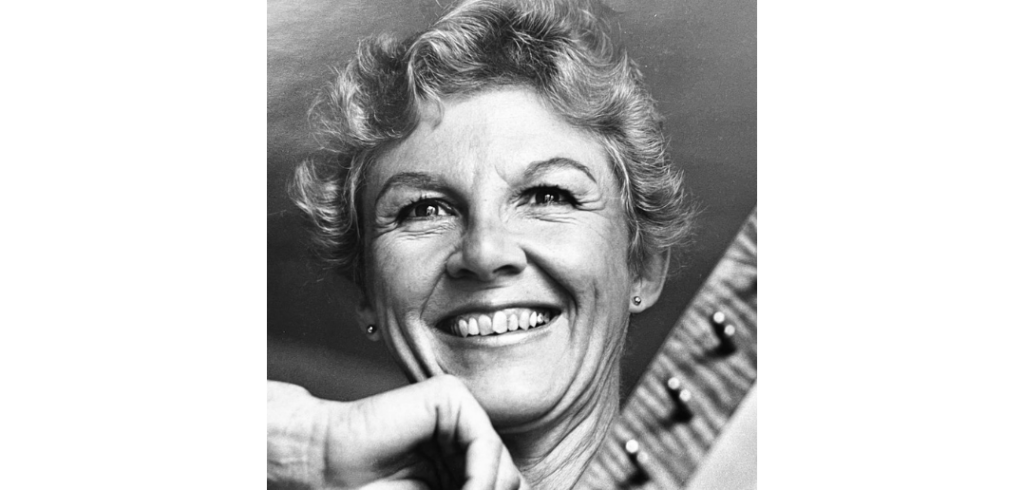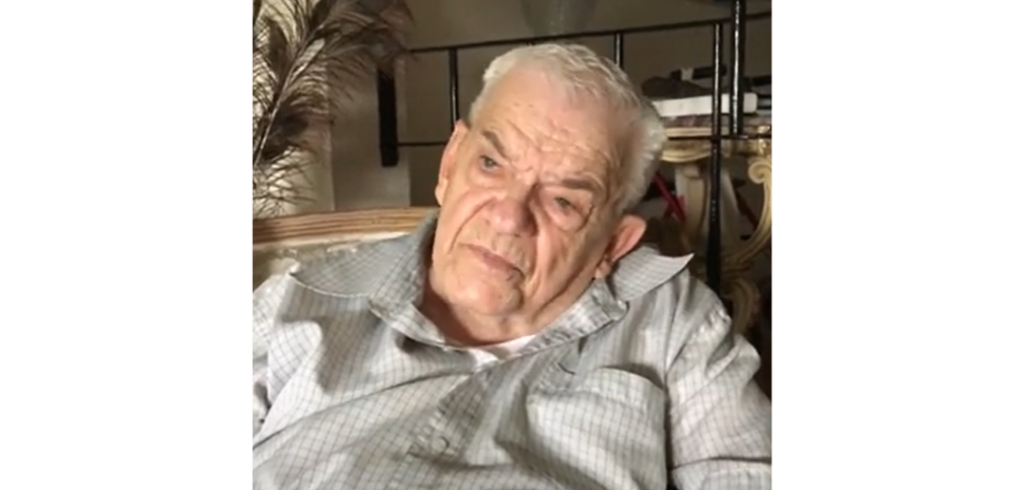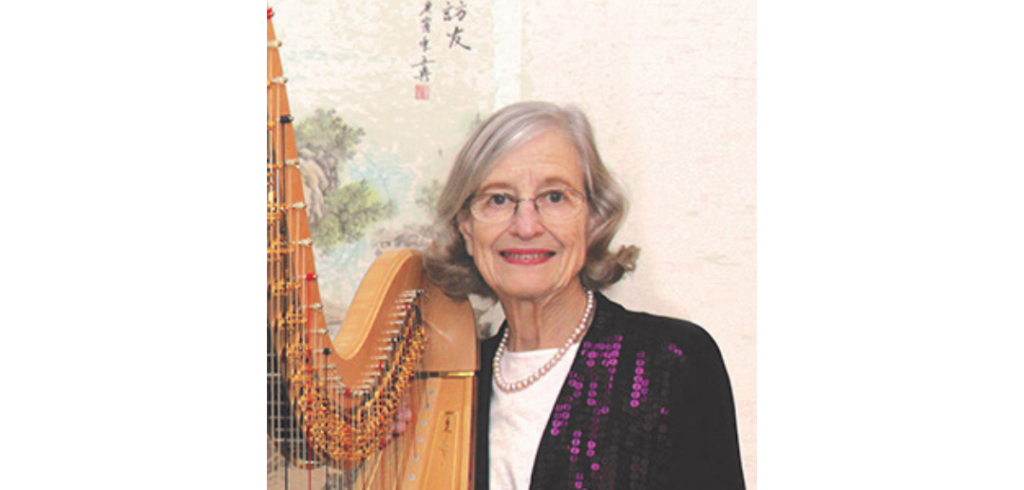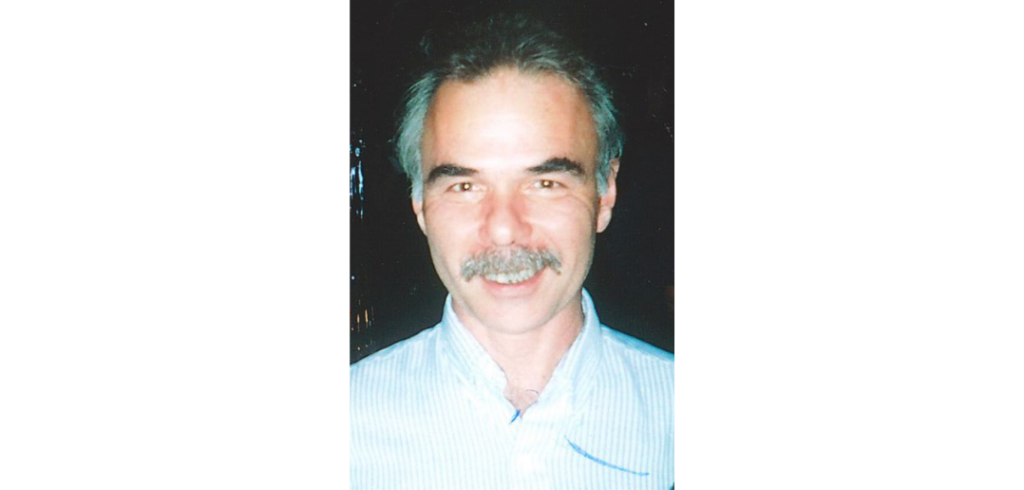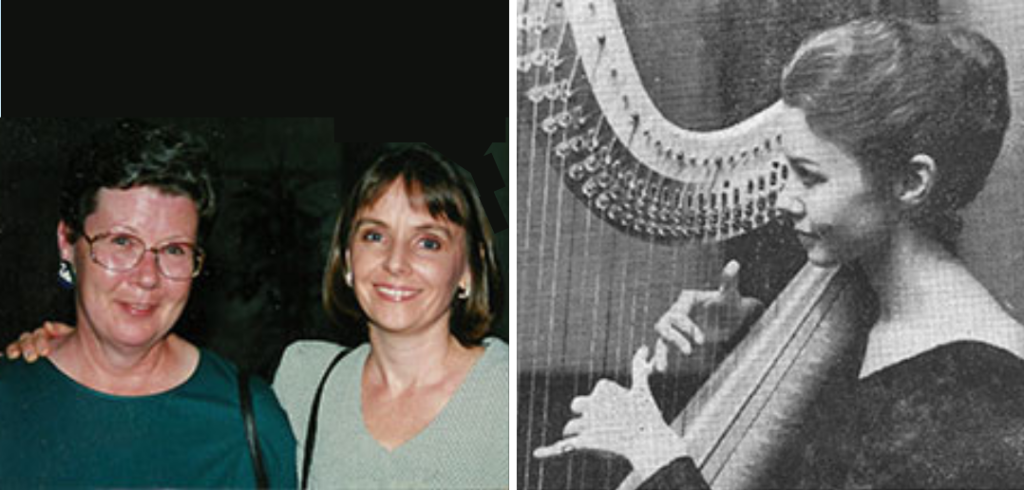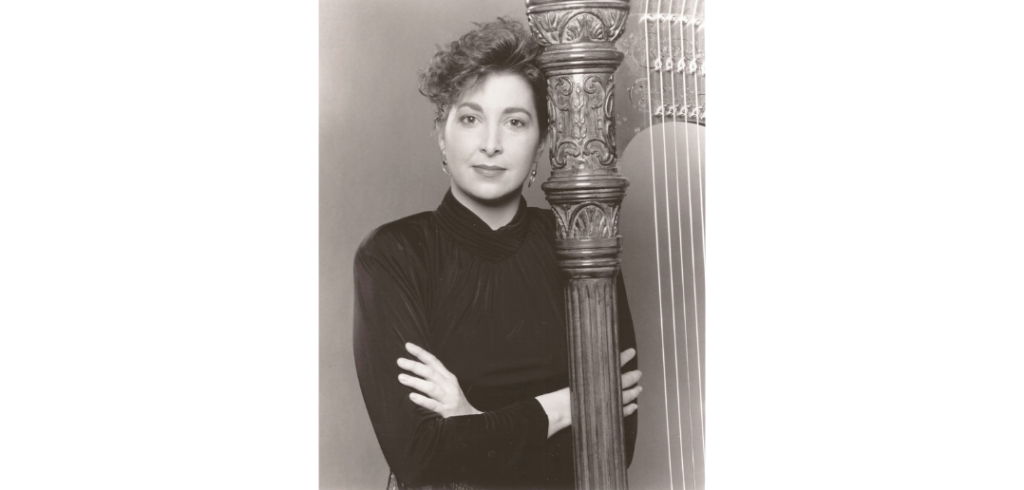French composer Pierick Houdy died in March at the age of 92. He was one of the most prolific composers of his generation for the harp, and many of the pieces he wrote for our instrument have become part of the core classical repertoire.
Pierick Houdy fell in love with the harp at the same time he fell in love with a young harpist named Ghislaine de Winter. She was a harp student at the Conservatoire Supérieur de Paris when he was a composition student there. Pierick told me that he wrote his sonata for harp as a wedding gift to his young beloved. Pierick and Ghislaine were one of the most extraordinary couples I have ever met. You wouldn’t see one without seeing the other. After Ghislaine passed away a few years ago, every time I spoke with Pierick on the phone, he would tell me how he felt her presence with him all the time, and how often they were still having conversations together during his sleep.
Born on Jan. 18, 1929, in Rennes, France, Pierick Houdy began composing in 1935. His first works (published by Henry Lemoine) were premiered in 1937 at the Opera de Rennes.
In 1939, the advent of World War II forced the Orchestre National de la Radio to take refuge in Rennes, and the sound engineer, who was also professor at the Paris Conservatory, accepted young Pierick into his class. At the conservatory, Pierick studied with Maurice Duruflé, Nadia Boulanger, Olivier Messiaen, and Darius Milhaud. A Premier Prix in composition, a second Prix de Rome and the Grand Prix de la Ville de Paris came to crown his young career as a composer.
In 1955, Houdy became the director of the Conservatory of Tours as well as organist at the Basilique Saint Martin, a post that he was forced to leave in 1960 under pressure of the city’s mayor.
Upon Houdy’s return to Paris, Jean Cocteau commissioned him to write the music for his play L’impromptu du Palais Royal. Another playwright, André Roussin, also asks him to create music for his play La petite hutte, which had been commissioned by the state.
Houdy became music director at the Eglise Saint Séverin in 1965, and a year later was named choir director of the Maîtrise d’Enfants of Radio France. In 1966, he received a state commission to celebrate the 1,000th anniversary of the Mont St. Michel, for which he wrote the Cantate à Saint Michel.
In 1970, Houdy was invited to be professor of composition at Laval University in Quebec City in Canada, where he was also organist of the university parish. Later, he was invited to teach at the Conservatory of Music and the Conservatory of Dramatic Arts in Quebec City. At the same time, he continued to compose and to participate in the theatrical world by writing music for plays in Quebec City, Montreal, and Toronto.
In 1972, Radio Canada commissioned a mass inspired by the musical traditions of Quebec. His Messe Québecoise, though having received a cold welcome by the Quebec City intelligentsia, was awarded the Grand Prix du Disque in 1978.
In 1992, the Houdys returned to France. I met Pierick in the early 1990s while competing in a competition in which he was a jury member. I didn’t win the competition, but I won something that I value even more—the friendship and recognition of Pierick Houdy. He came to me and told me that my playing spoke to him so much that he wanted to write a piece for me. Several years later, he wrote the harp concerto Concerto Français, which I performed at the World Harp Congress (WHC) in Prague in 1999. We had a wonderful collaboration on the piece and, as there were very few dynamics and musical indications written in the score, I asked him what he would prefer here or there. His answer was extraordinary. He said, “I have built the house, now you put in the decoration.” Such was Pierick, the most humble man with the most amazing sense of humor I have met. I was also lucky enough that he asked me to record a CD (released in 2004) of his most famous pieces for harp, including the concerto. In 2008, Pierick Houdy became in Amsterdam the first composer-in-residence that the WHC has honored, and it was so well-deserved.
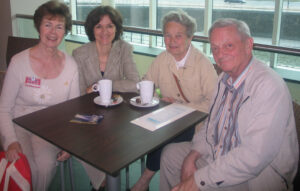
From l. to r.: Patricia Wooster, Isabelle Perrin, Ghislaine Houdy, and Pierick Houdy enjoy tea together at the World Harp Congress in Amsterdam in 2008.
Pierick was always full of anecdotes. He told me once about another competition he was judging and where his sonata was performed. One of the candidates, who was quite young, played the last movement so fast that, at the end of the competition, he went to tell the young candidate, “You know, this movement doesn’t need to be played so fast.” The young harpist replied, “Oh, but then the jury will think that I have no technique!” Decades later he still enjoyed a laugh about it.
Over the years we stayed in close touch, and a year and half ago, I invited him to come to the Norwegian Academy of Music in Oslo to give a masterclass to one of my students who was playing some of his pieces for her master’s degree. Unfortunately, due to a terrible storm (Pierick was living on Belle-Île en mer, a little French island off the coast of Brittany), he couldn’t take the ferry and missed his flight. We tried to reschedule a few weeks later, but he felt ill and had to stay home. Then the pandemic arrived and travelling became very complicated. In the end, we decided to have the masterclass on Zoom with Pierick, my student, and me. This happened just three weeks before he passed away, but he was still so incredibly full of life and humor, as always, and we were so lucky to have shared that time with him.
—Isabelle Perrin
“Music, as everyone knows, expresses only itself, independent of reason, psychology, and images. It is a creation of thought, without link to nature, and hopes only to transmit what would be incommunicable for another form of expression. It is, like all the arts, the tangible effect of an energy that transcends language to touch our logos. Thus, it moves our sensitivity without necessarily passing by way of our rational intelligence.” —Pierick Houdy






